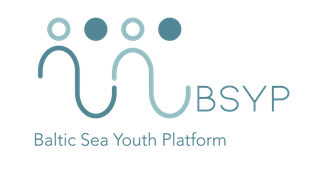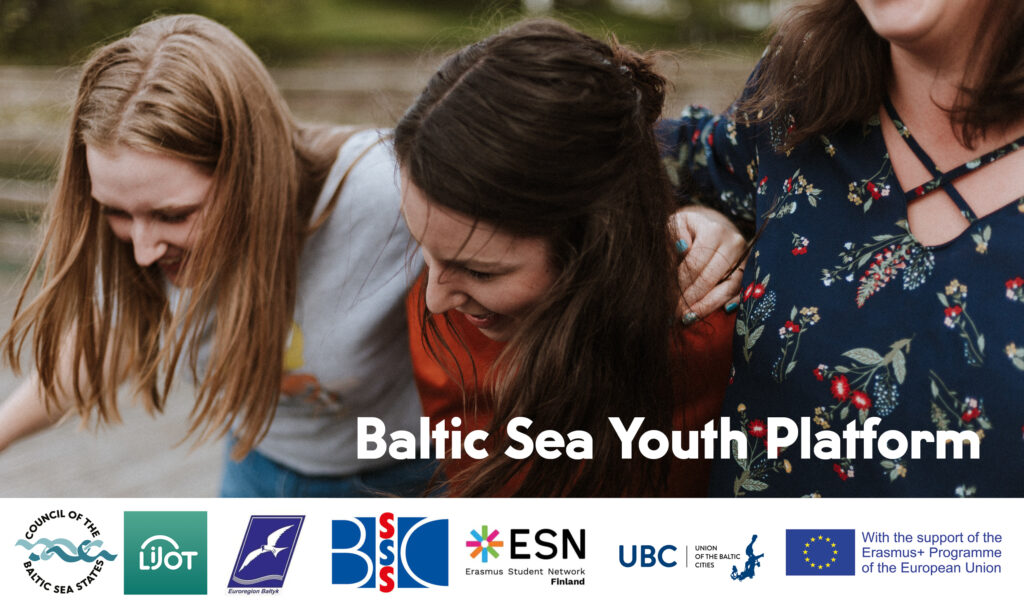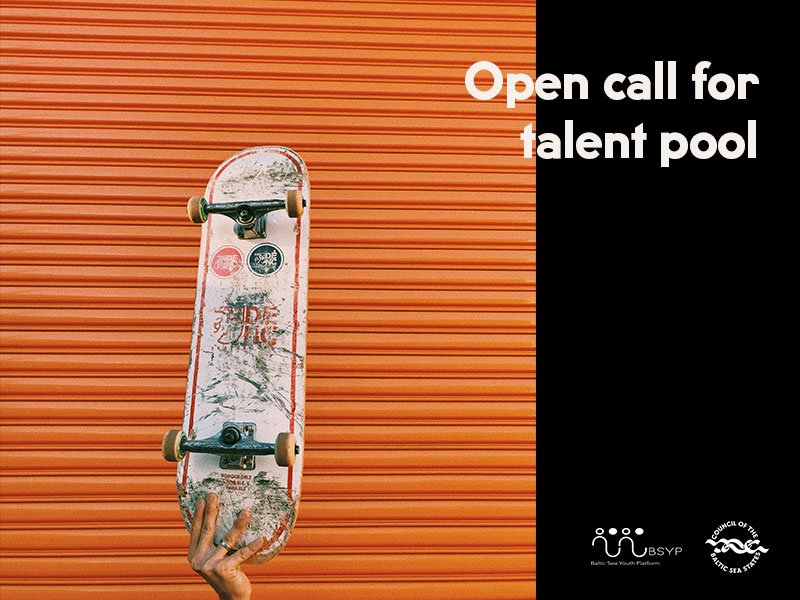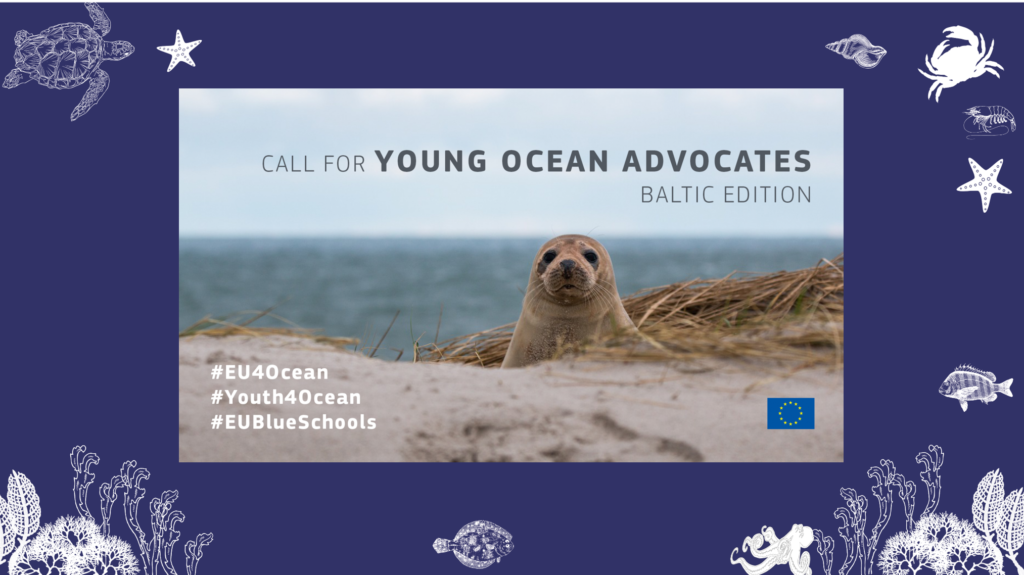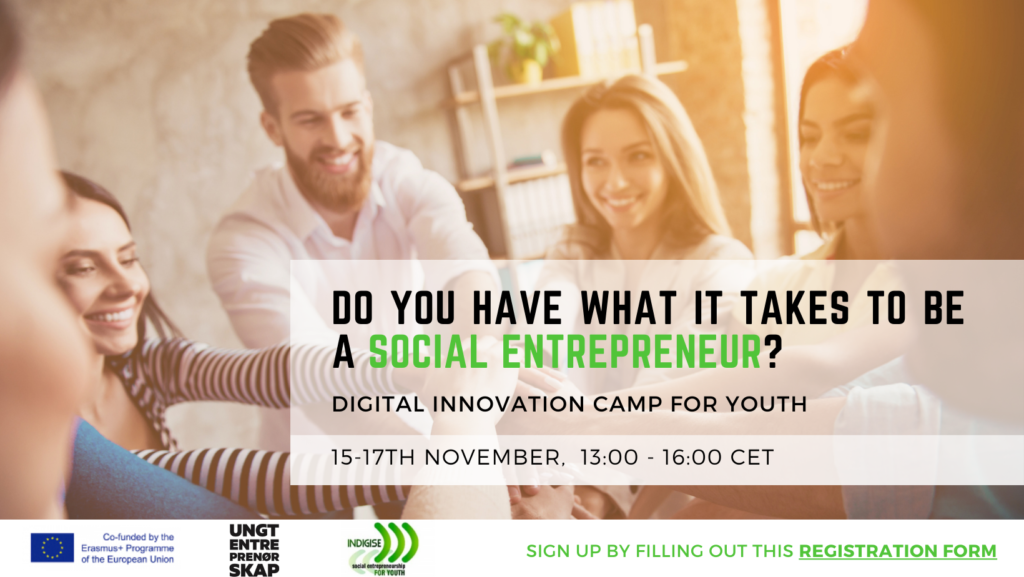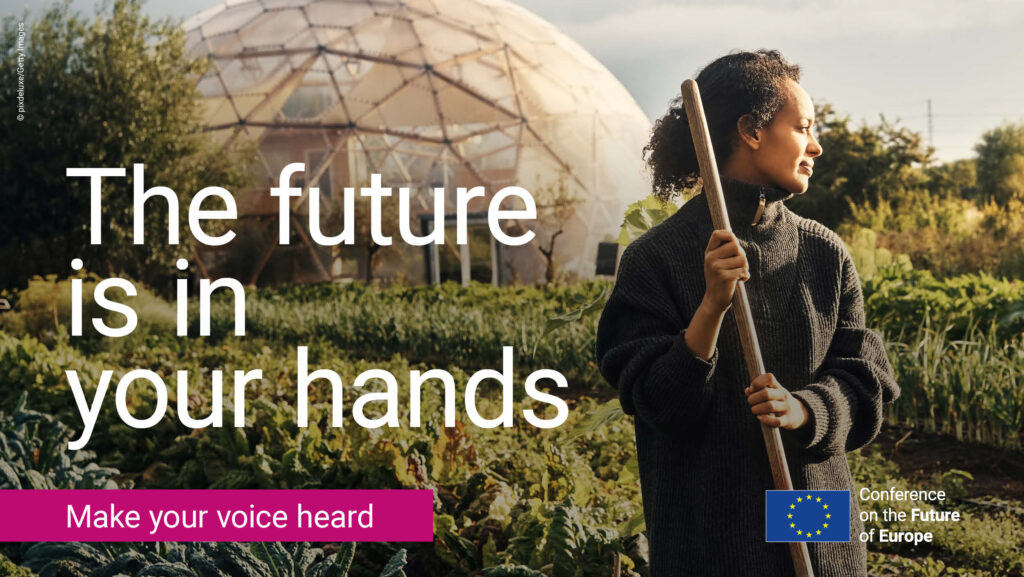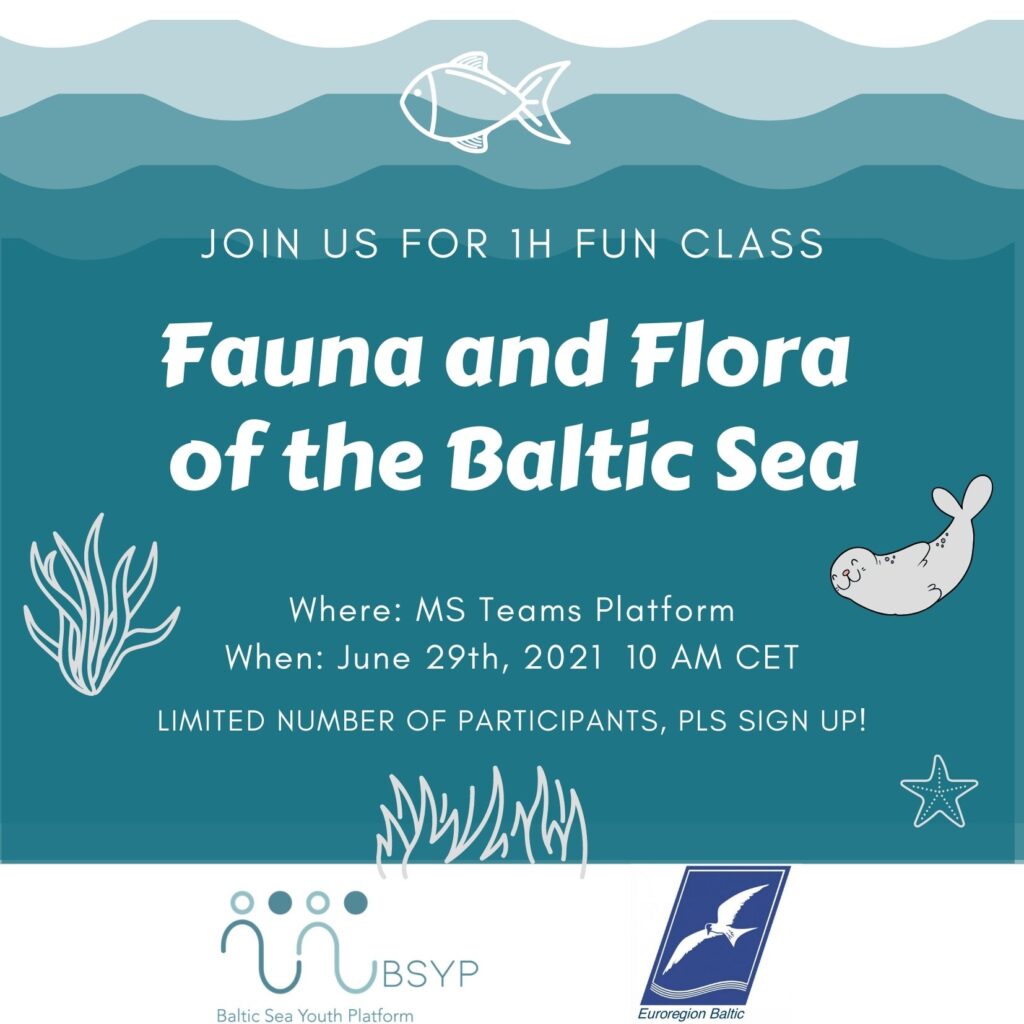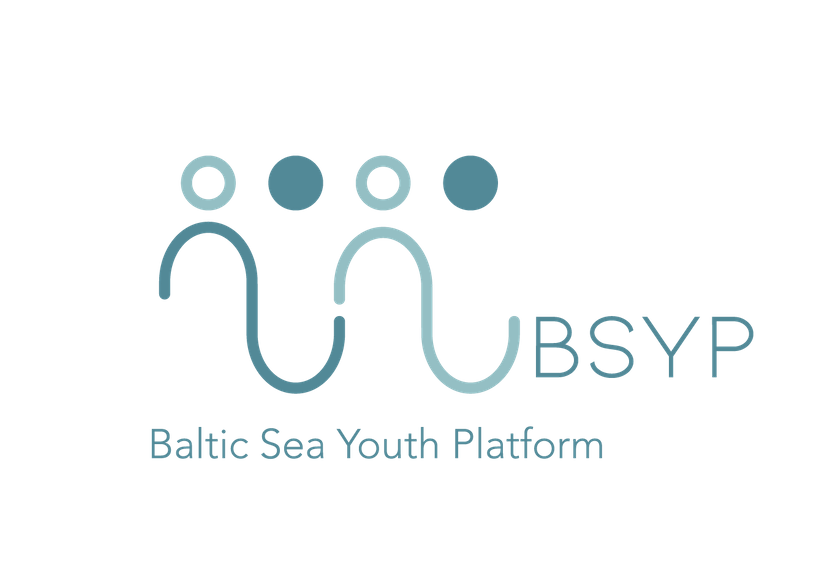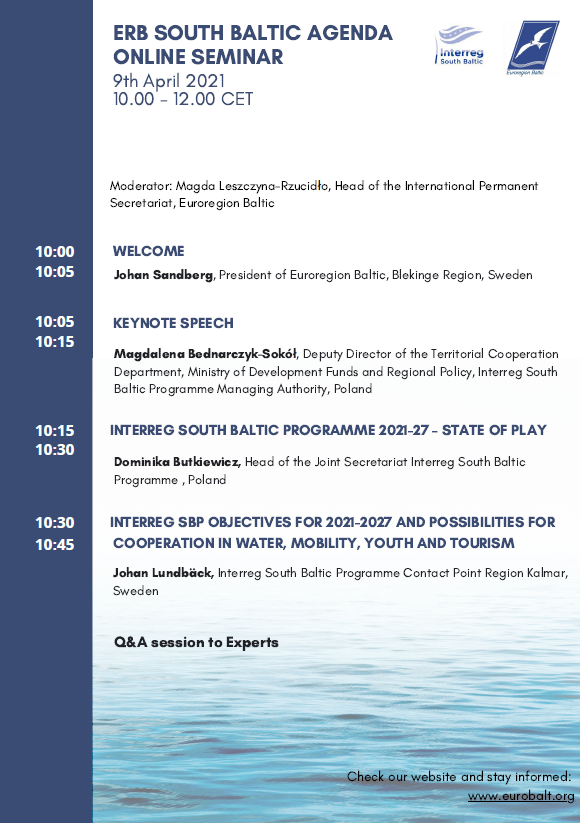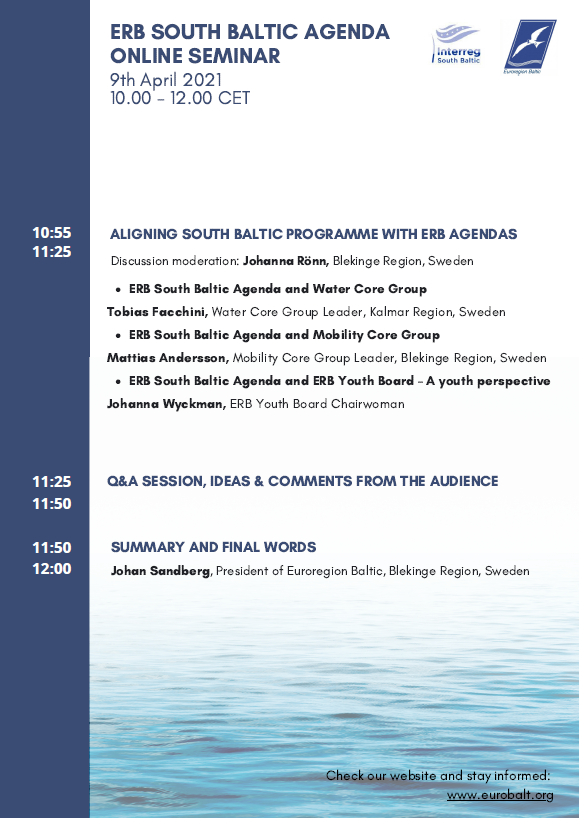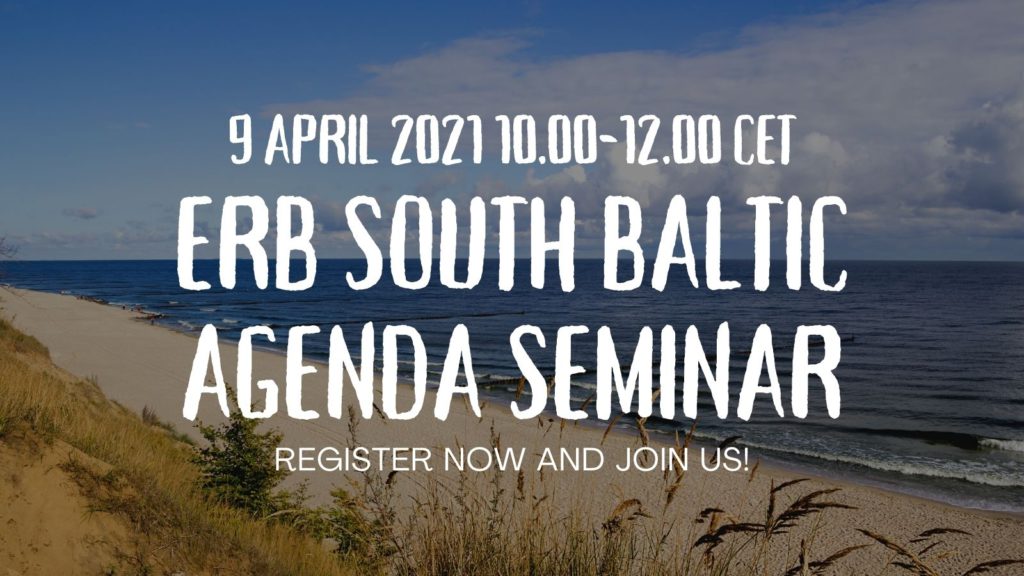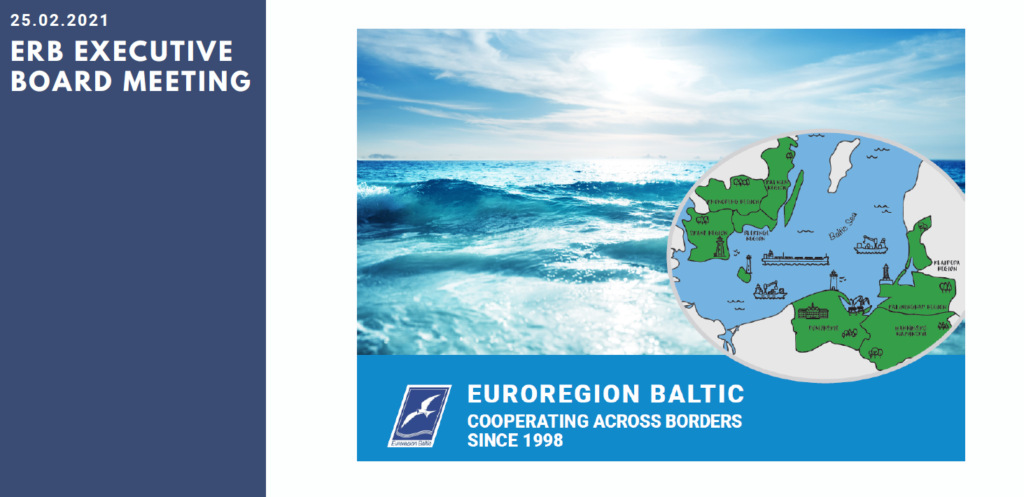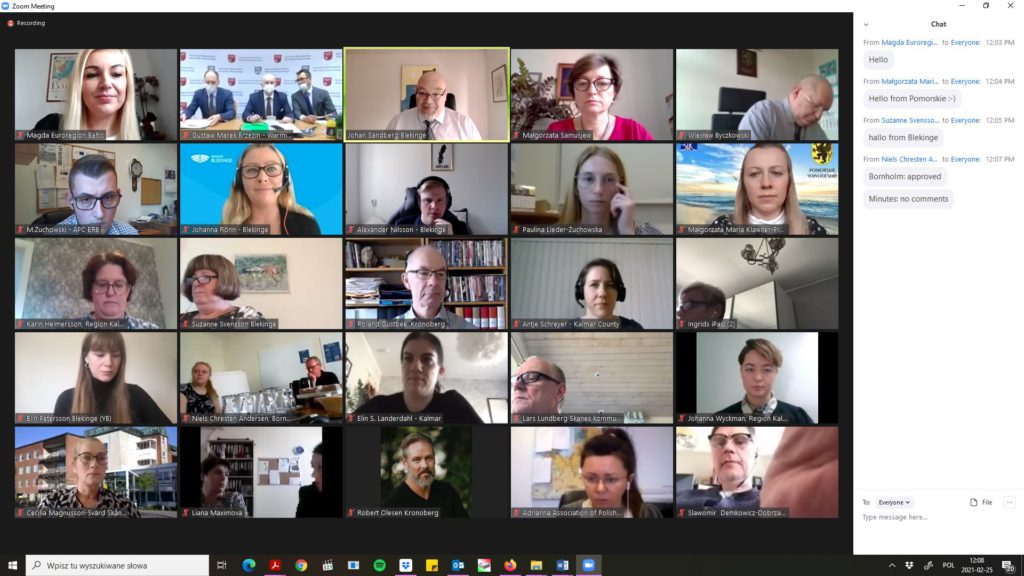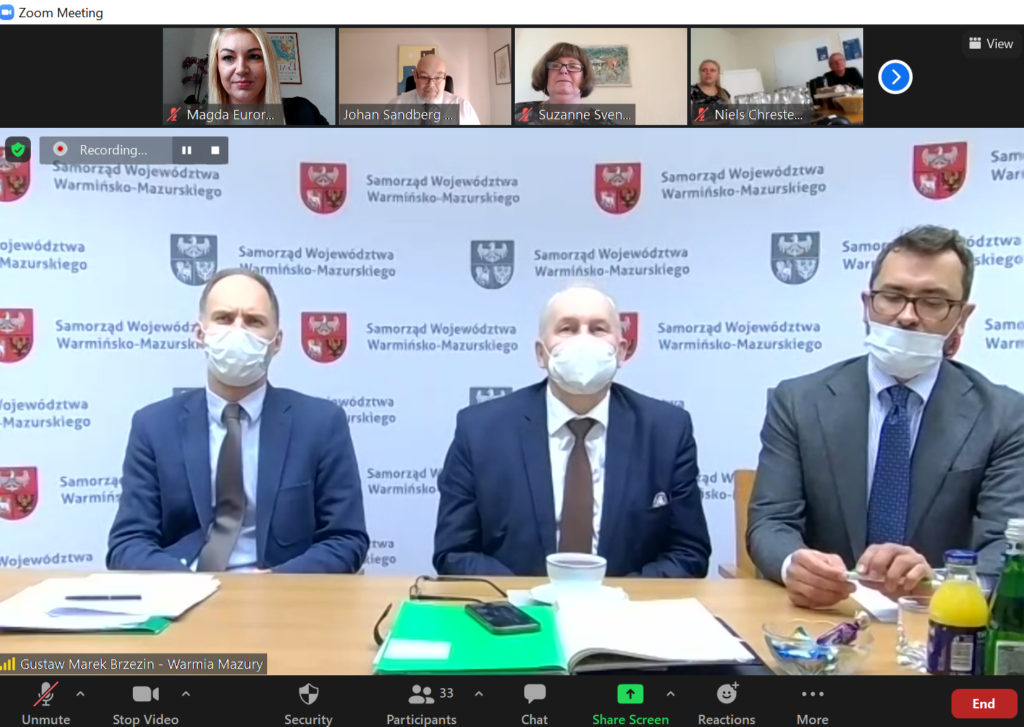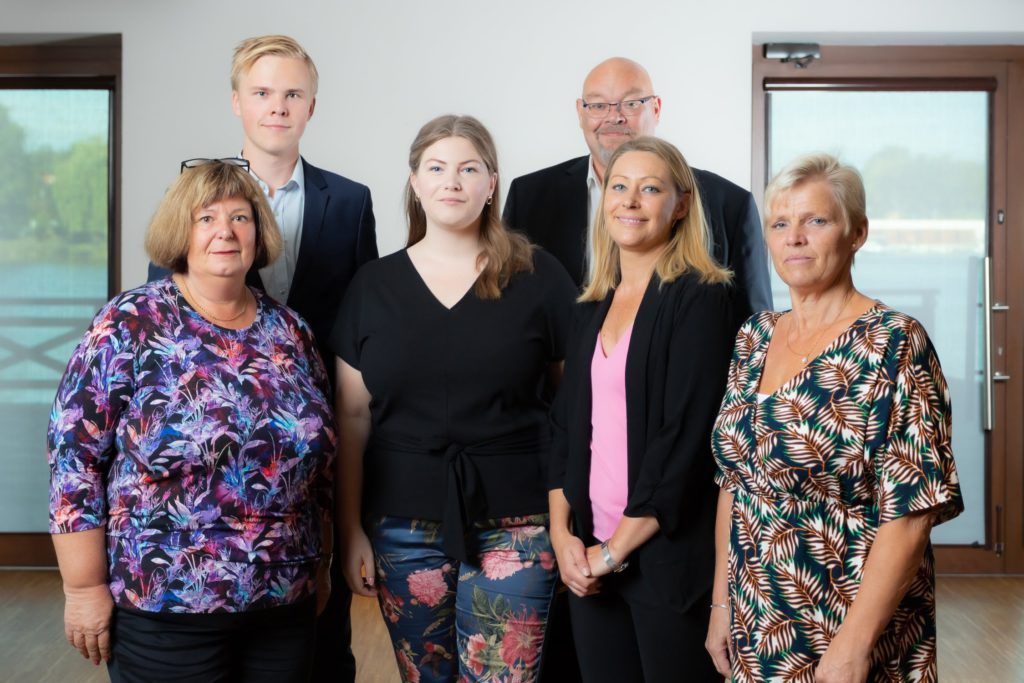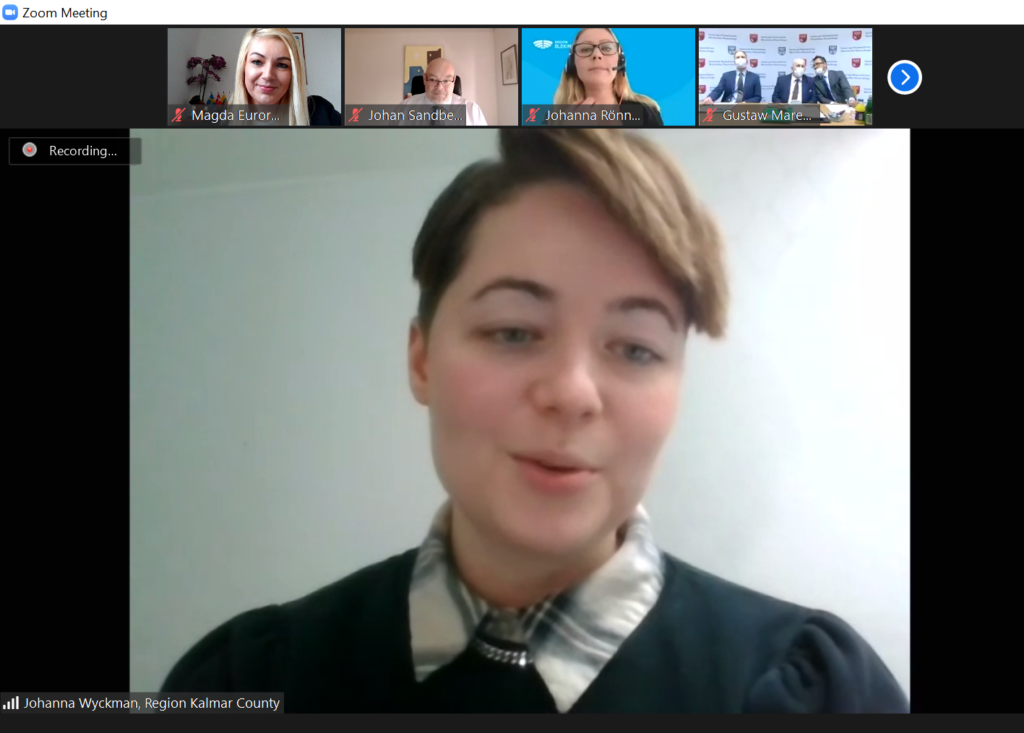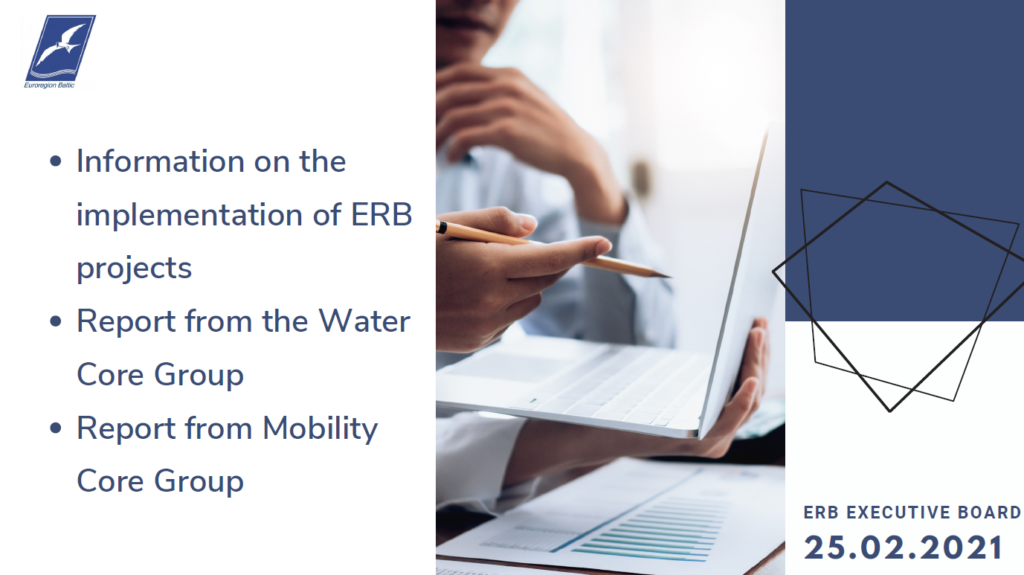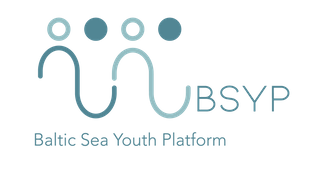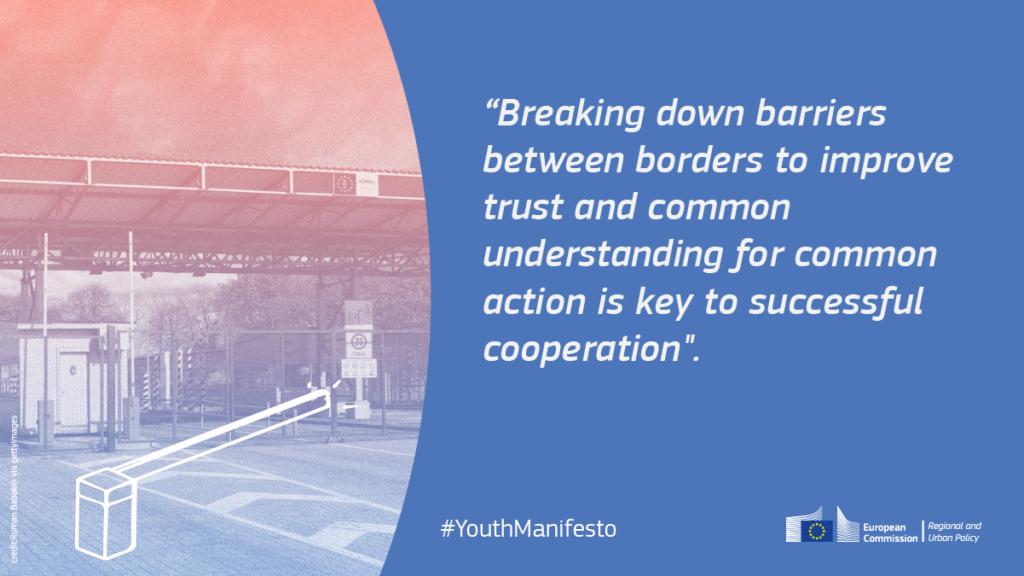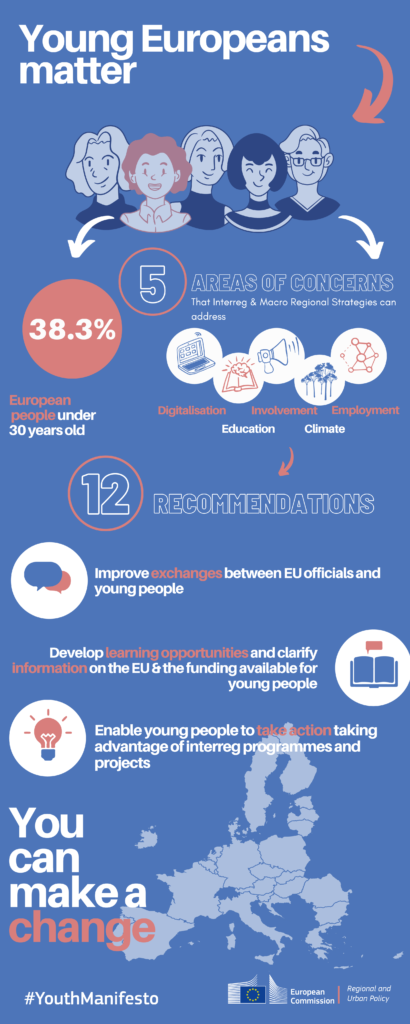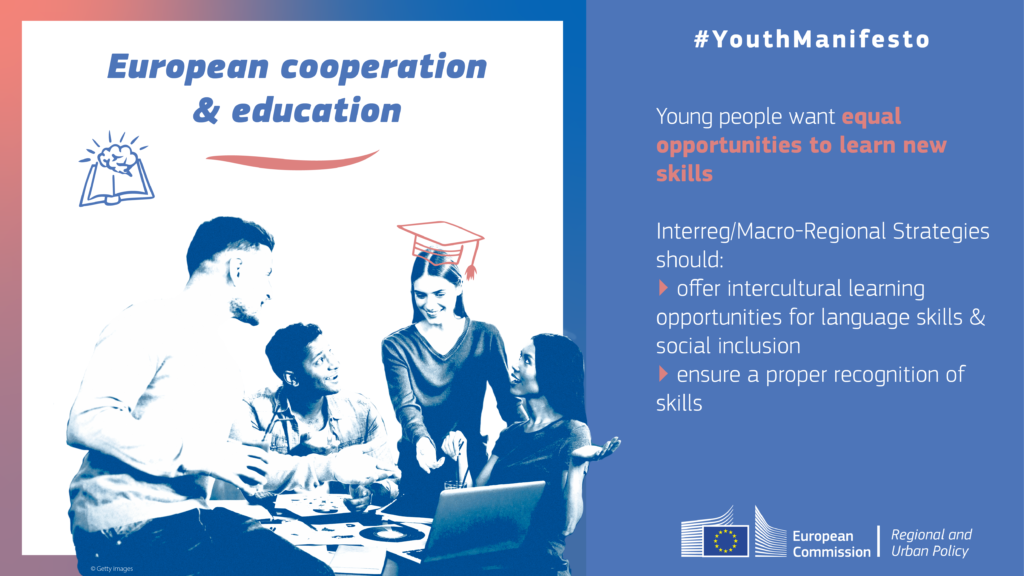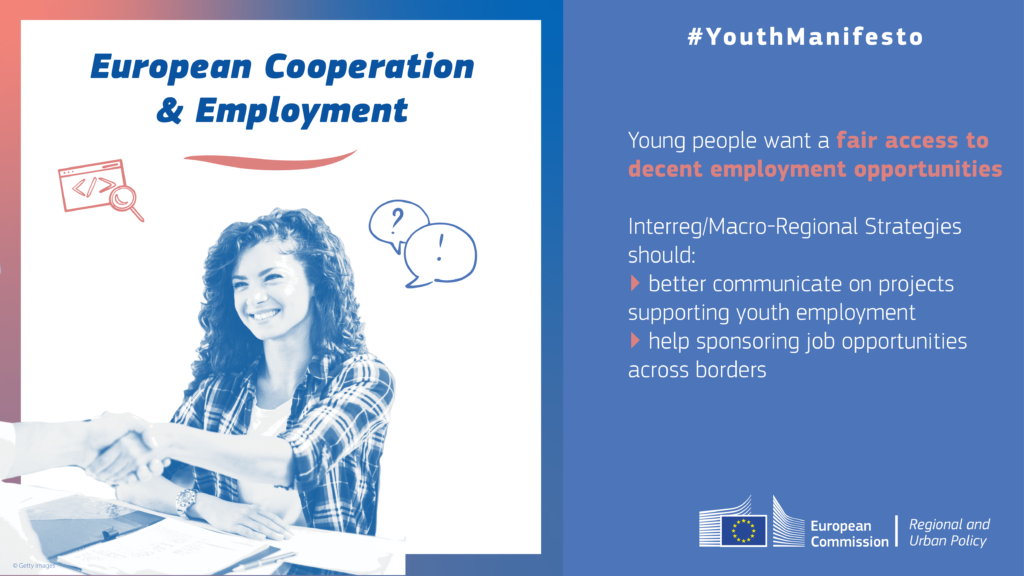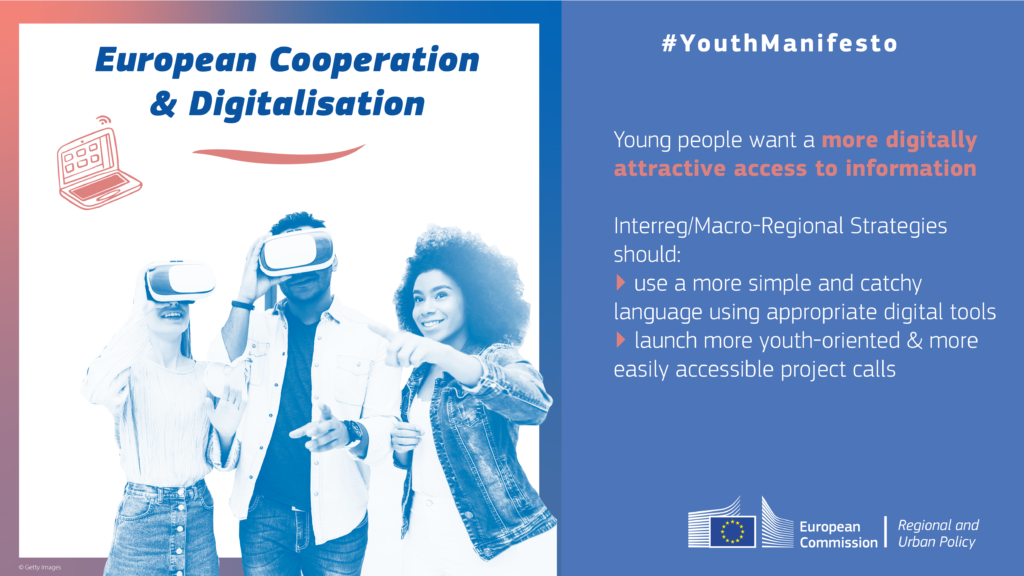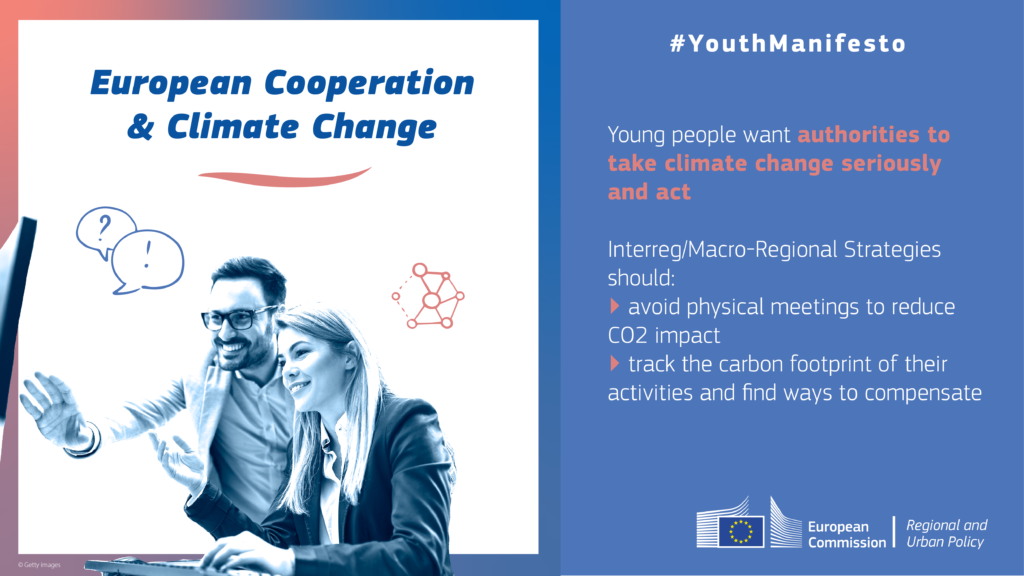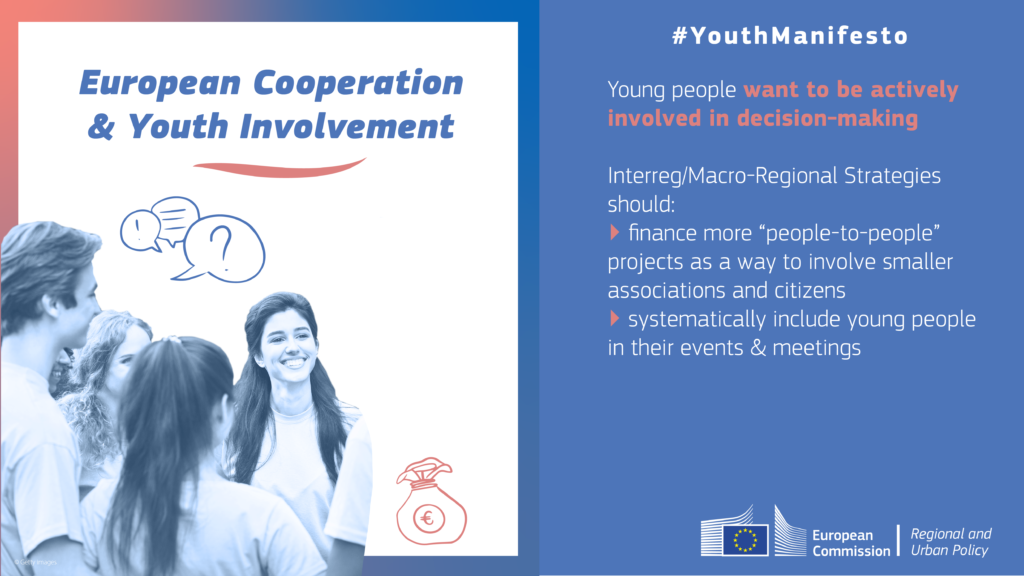Baltic Sea Youth Platform is an Erasmus+ Programme project aiming at empowering youth and fostering actual participation in decisions and policy-making in the Baltic Sea Region. It started on February 1st 2020 and was prolonged from August 2022 until December 2022. Despite many difficulties and inconveniences caused by the pandemic, the project partnership supported and got involved in many significant youth-oriented initiatives throughout the past year, thus promoting the idea of BSYP.
In 2021 project partners meetings were held online every two weeks, which contributed to building strong engagement and developing new initiatives and great ideas for further cooperation.
On March 1st, BSYP conducted the Youth Forum within the 2nd EU Macro Regional Strategies week hosted by DG REGIO. Julia Orluk, ERB’s Youth Board former Chairwoman, who’s been engaged in the BSYP project from its’ very beginning, was among the panellists of the bottom-up session to empower the participation of Youth and Civil Society Organisations in MRS.
In March 2021, the First Interim Report for the Baltic Sea Youth Platform Erasmus+ project was submitted and approved by the Swedish Agency.
In April, the BSYP project participated in two youth-oriented events: BSSSC Youth Network on April 14th and Digital Youth Workshop on Green and Social entrepreneurship co-organized with Youth4Nature.
May 2021 was another busy month for BSYP. On May 6th BSYP became a part of a youth panel during a CBSS trafficking conference focusing on human trafficking during the digital era. The meeting was co-organized by TH-TFB and the CAR unit of the CBSS. Next, on 12th – 14th May, the CBSS Ministerial Youth Edition was held, where again BSYP was very active. During the event, young people from the Baltic Sea region came up with great ideas that evaluated the CBSS Vision Statement Beyond 2030, presented to the Foreign Ministers at the CBSS Ministerial on June 1st.
Finally, between 28th and 29th May, BSYP joined the BSSSC Youth Spring Event, where modern democracy, Baltic sustainability and entrepreneurship were discussed with experts from EU Parliament.
On June 22nd, all BSYP project partners and associated partners joined Partnership Day to work on the platform vision with ACTER experts. Project partners discussed further steps regarding virtual platform development, toolkits and guidelines issues within Baltic Sea Youth Power Box, policy recommendations, youth input to the Baltic Sea Cultural Cities and other matters connected to the external report.
August 2021 was also filled with extraordinary events dedicated to Youth, and the BSYP project was proud to be a part of them. Starting up with 41st Hanseatic Days days on 19th -21st August, a hybrid event taking place in Riga and online. Among others, the program included the “Youth Hanza” event, which was a virtual meeting of young people from member cities, during which issues of current issues in the region such as the climate and environment, the participation of young people in these processes, as well as the history and traditions of Hanseatic cities were discussed interactively.
On 28th – 31st August, BSYP joined the ReGeneration Week 2021 – a hybrid event, where people participated physically on the Åland Islands and through the streaming tool Coeo. The ReGeneration Week provided an international meeting place for intergenerational dialogues for a sustainable system change. The theme for the ReGeneration Week 2021 was “ReThinking The System”, which highlights the need for a sustainable recovery after the pandemic. ReGeneration Week 2021 offered interactive lectures and workshops, intergenerational dialogues and provided tools to contribute to a more sustainable life in connection to the five different domains in Anatomy of Action.
On August 29th, the Council of the Baltic Sea States (CBSS)/Baltic Sea Youth Platform, together with the Swedish delegation to the Baltic Sea Parliamentary Conference (BSPC) and the Ministry for Foreign Affairs of Sweden, organized the Baltic Sea Parliamentary Youth Forum to promote dialogue between young people of the region and policymakers.
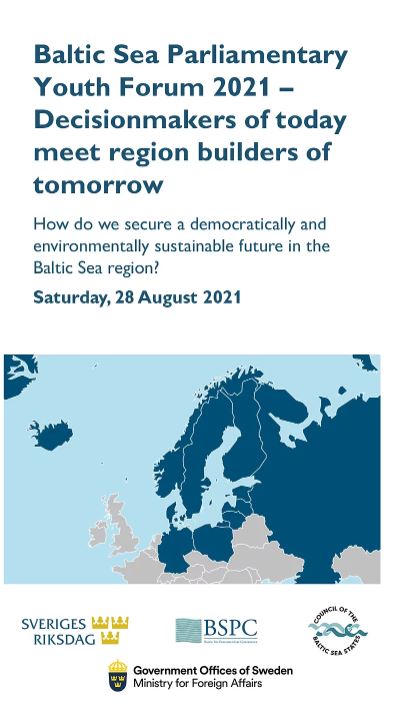
The Forum gathered young people and members of parliament from the Baltic Sea Region who discussed how to secure a democratically and environmentally sustainable future. It provided an opportunity for young people to give input to policymakers on the issues at hand and gain insight into international parliamentary cooperation.
Furthermore, BSYP was an active participant at the EUSBSR Annual Forum 2021. On September 30th, CBSS organized a panel discussion on Empowering Youth for Green Entrepreneurship, which became a platform for young entrepreneurs from across the BSR to share their insights on how to start a green business and provide their experience regarding existing obstacles and barriers for receiving funding and building a business model. The panel also gave the floor to representatives of financial institutions and programmes. The participants also had an opportunity to discuss how to improve the status quo regarding financial mechanisms and accessibility and provide a more supportive environment for young people to start their businesses in the BSR. The last day of the Forum was entirely dedicated to youth issues. Participants joined a plenary session on Youth’s involvement but also heard more about Klaipėda as the European Youth Capital 2021, the role of Youth in implementing ambitious green agenda of the EU, the presentation of Lithuanian Sea Museum, creative workshop on SDGs, presentations of sustainable solutions of businesses and many more.
In October, CBSS announced a call for the Baltic Sea Youth Dialogue 2021: Looking forward, looking back – 30 Years of Collaboration in the Baltic Sea Region. The dialogue, held between 4th-28th November, consisted of three lectures on the following topics: Safe & Secure Region, Sustainable & Prosperous Region and Regional Identity. All participants of the lectures had an exciting opportunity to dialogue with experts from the region. The discussion was followed by two activities: a cross country assignment and a learning diary. Each activity’s best creative entries were later awarded during the online ceremony on December 11th 2021.
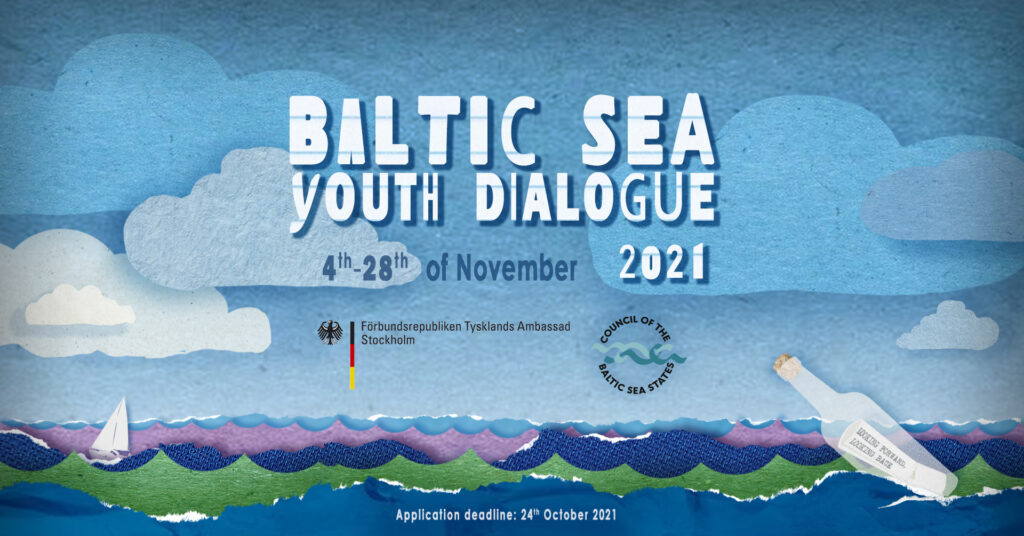
On November 1st, the Baltic Sea Youth Platform partnership announced the recruitment for the Baltic Sea Talent Pool. Young people (18-30 years old) eager to be active in shaping policies within the region could apply to join one of the working groups: advocacy – responsible for writing policy recommendations and taking part in the events, culture – implementing local actions and being part of the development of the Baltic Sea Cultural Cities and Regions Project Or to become a part of BSYP taskforce for child protection policies.
On November 23rd, CBSS presented the BSYP during the “Connecting minds across the ages” side event at the NDPHS Partnership Annual Conference.
Finally, on 25th and 26th November, the BSYP project partners met physically in Stockholm for the first time after nearly 20 months. At the two day meeting, organized in the premises of CBSS, representatives from Sweden, Norway, Lithuania, Estonia, Germany and Poland, including many youth representatives, had an opportunity to discuss the current status of the Project, partner contribution, funding options, add-ons to be created, development of intellectual outputs within Project as well as Strategy, Vision and Partnership beyond 2022. The second day of the meeting was filled with some great workshops within the Baltic Sea Belongs to Kids project and very fruitful discussions among members of BSYP Working Groups.
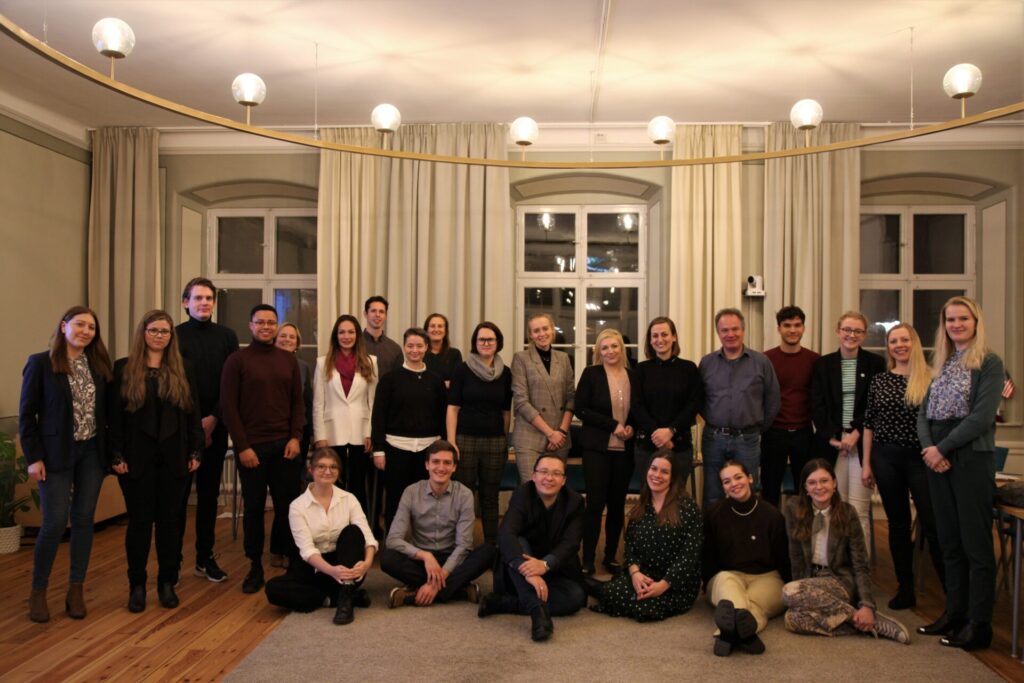
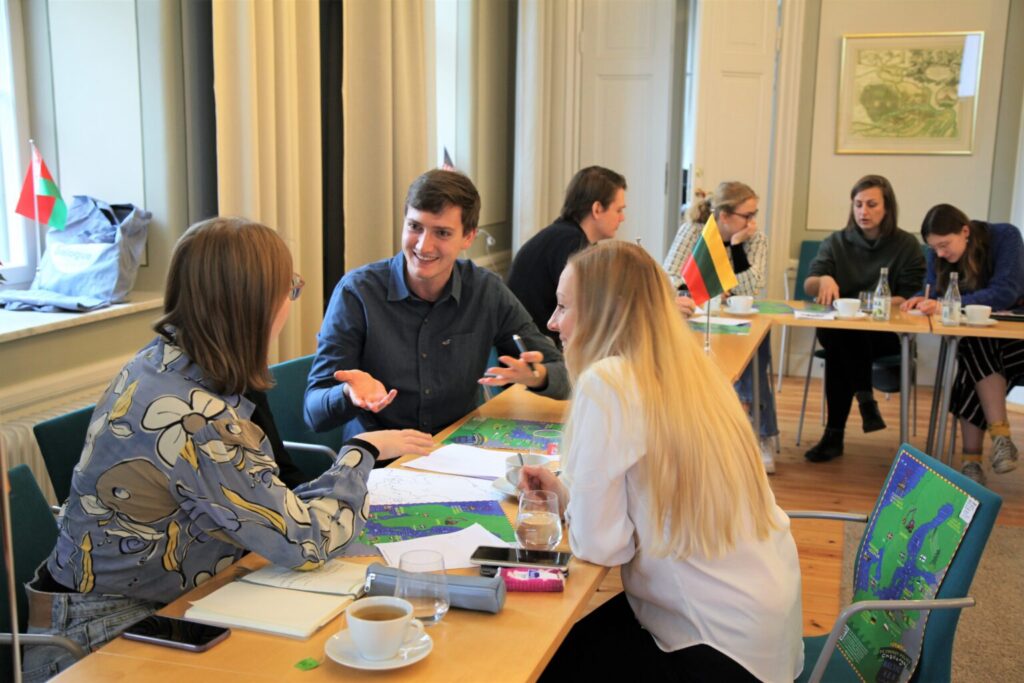
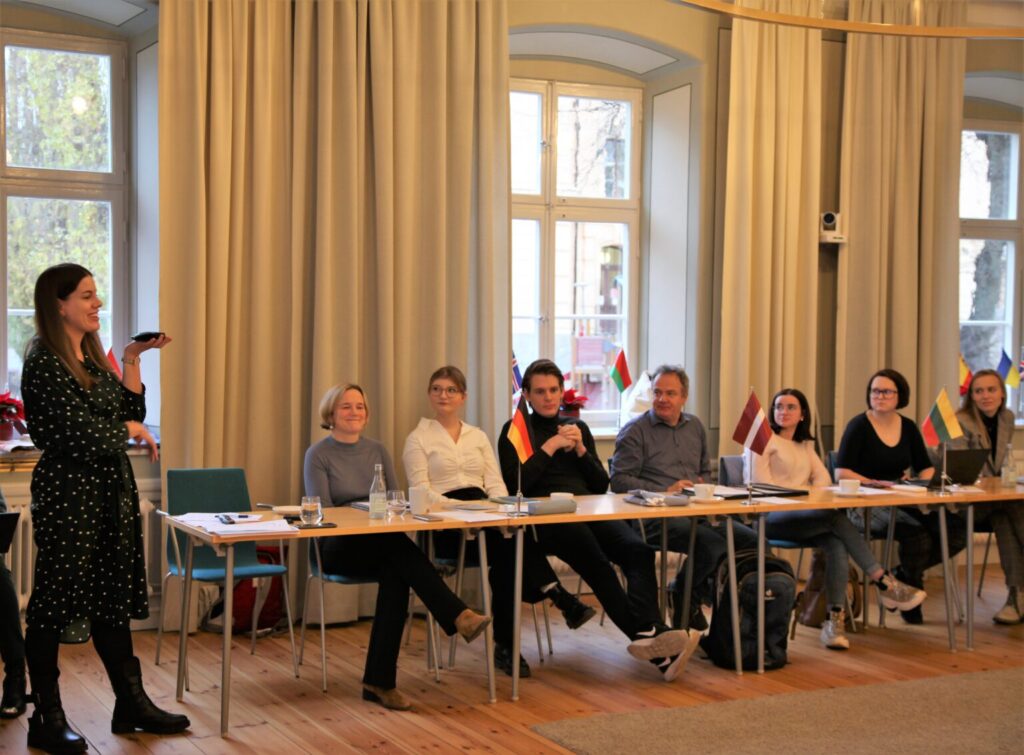
- BSYP Vision Beyond 2022
As a follow-up of the youth involvement in the first CBSS Committee of Senior Officials meeting in mid-September, BSYP was asked to provide a first draft of a vision for the BSYP after the project ended. The document is an internal document of the CBSS to continue the discussions on the institutionalization of the BSYP. It was meant to start a debate amongst the CBSS Member States on how financial support of the BSYP could look like after the Erasmus+ Project ends. On November 23rd, the CSO met and discussed the BSYP Vision Beyond 2022 proposal and how to move on with the BSYP.
